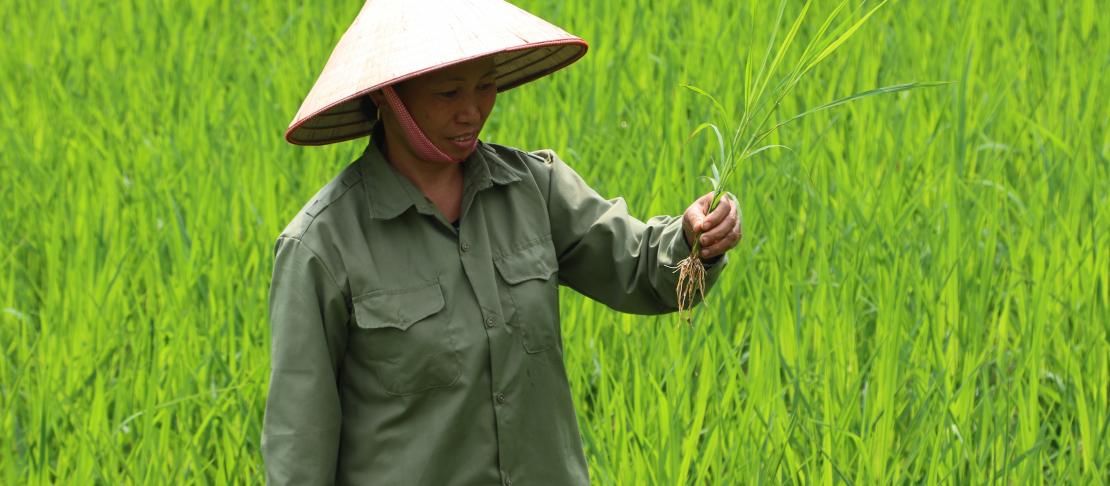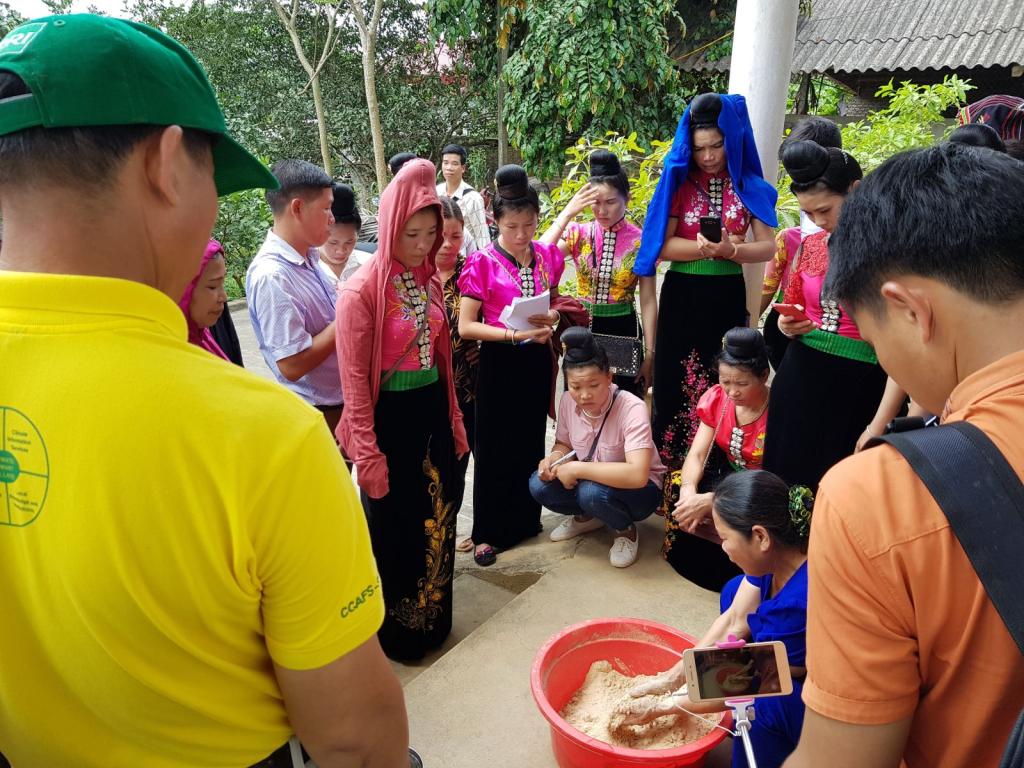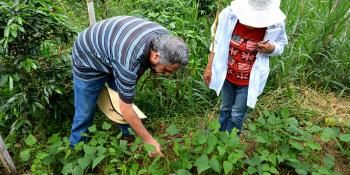Climate-smart practices for your household!

Learn how to be “climate-smart” with materials readily available in your home.
Animal dung and worms, as odd as they may seem, can be used to conduct climate-smart practices in households. Visitors from the Muoi Noi and Bon Phung communes of Son La Province learned this during a field visit to Vinh Kien Commune of Yen Binh District and Mau Dong Commune of Van Yen District in Yen Bai Province. Aside from growing worms and reusing animal dung, the visitors learned that they can intercrop legumes or peanuts on sloping lands with corn, coffee and plum crops, in order to ensure soil fertility, soil moisture and soil improvement. This encourages farmers to avoid using harmful herbicides on their farms.
These practices are developed in Climate-Smart Villages (CSVs)—vulnerable communities serving as “testing hubs” to assess various climate-smart agriculture (CSA) options. The CGIAR Research Program on Climate Change, Agriculture and Food Security in Southeast Asia (CCAFS SEA) partners with government agencies, academia, and research and development organizations to develop context-specific but scalable CSA options for farmers.
 Demonstration on using wine yeast and rice bran to ferment bacteria for biological pads for chicken. Photo: SRD
Demonstration on using wine yeast and rice bran to ferment bacteria for biological pads for chicken. Photo: SRD
“Freshens the environment”
The visitors learned that they can grow commercial earthworms called perionyx excavates to handle animal dung and produce feed for their poultry. "According to what I observed, the model of raising worms…helps to feed chickens and deodorize and handle large amounts of dung waste from 3 to 4 cows. The protein content in the worm is also good for chickens and for fertilizing crops. I no longer have to use chemical fertilizers," Bac Thi Hien, one of the visitors, said after watching how the residents of Ma CSV utilize earthworms in their households.
Households can complement worm raising with bacterial fermenting from wine yeast. Quang Thi Phuong, another visitor, shared that in their village, they buy bacterial fermenting yeast for the biological pads of their poultry. They learned in their visit that they can buy wine instead, which is a cheaper and easier way of preparing biological pads.
The visitors, inspired by the stories shared with them by the villagers, expressed their interest in adopting these practices on their farms. Quen Van Chuong, one of the visitors, declared that he will apply the practices he learned and encourage his neighbors to follow suit.
From the visit, the group also learned how to implement climate-smart rice cultivation, which involves animal dung from livestock. Such complementary activities teach farmers how to utilize available resources, including time, labor, and money. This is one of the manifestations of CSA on the ground: helping farmers increase the productivity of their farms, which leads to more income that they can take home for their families. CSA also promotes farmer-to-farmer learning, building sustainable relationships among farmers, public sector actors, private sector actors, and civil society sectors.
Read the original story by the Center for Sustainable Rural Development: Travel Broadens the Mind.
Read More:
- Blog: Developing climate-smart farmers using knowledge-sharing and on-site learning approaches
- Blog: Farmers in Ma Village to lead in outscaling climate-smart agriculture
- Blog: Getting the message across: Communicating sustainable farming practices to improve adoption in Vietnam
This is an excerpt of the story Travel Broadens the Mind, originally published on the website of the Center for Sustainable Rural Development.
Dr. Vinh Le Bui is a researcher at the International Center for Tropical Agriculture Asia. He is also CCAFS SEA’s coordinator for the Ma CSV in Vietnam.



